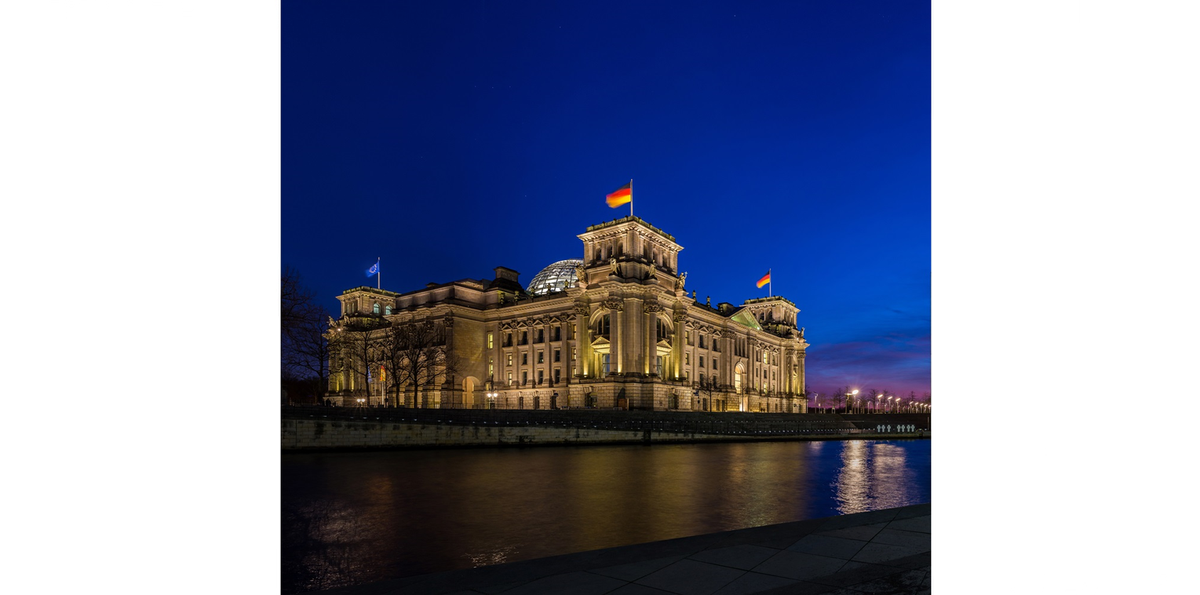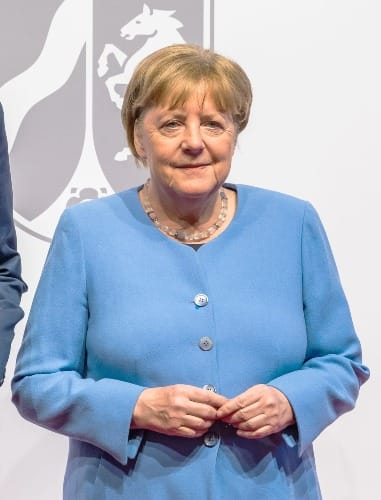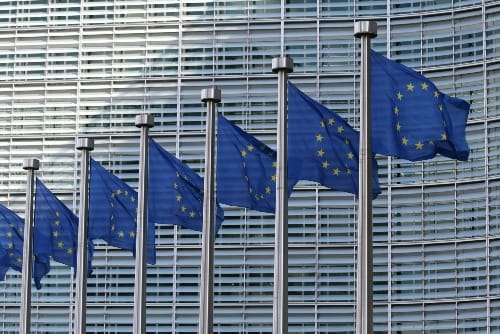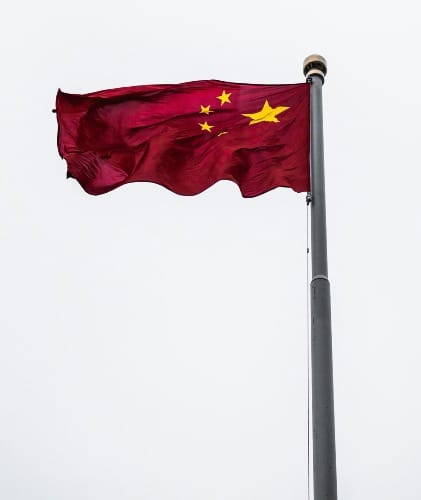Adrift and Dependent: The Decline of Germany’s Foreign Policy Autonomy

Share
In Angela Merkel’s final years as chancellor, Germany balanced power, pragmatism, and partnerships, positioning Germany as Europe’s powerhouse and a global player with ties to both East and West. After 16 years of Merkel’s steady leadership, Germany had earned a reputation as Europe’s stabilizer, able to skillfully navigate crises.
Germany played a pivotal role in keeping the EU's cohesion, providing a balance to U.S. power from the west and managing a complex relationship with Russia and China to the east.
Fast-forward a few years under Olaf Scholz, and the story looks starkly different. Today, Germany is grappling with energy crises, economic strain, and a global role relegated to little more than a follower of U.S. policy dictates. Since 2022, its energy and security dependence on the United States has reached levels that would have seemed unfathomable under Merkel’s watch.
While there are numerous internal drivers for this decline, what we will look at today is the foreign policy angle: how did Scholz’s foreign policy decisions reverberate back onto the internal situation in Germany? This isn’t just about gas or geopolitics; it’s a cautionary tale of what happens when foreign policy becomes embroiled in ideological alignments lacking in strategic foresight.
Merkel’s Balance: Stability and Strength

In Merkel’s world, foreign policy wasn’t about taking sides; it was about balance and Germany's interests first and foremost. While NATO and the EU were strong commitments, they did not override her primary focus on her country's interests. Merkel kept Germany’s options open, building strong economic ties with Russia for affordable energy and China as a key market for trade.
She played the foreign policy game with an eye for keeping Germany as the fulcrum of Europe. In positioning her country, she ensured that close ties with the U.S. did not entail over reliance. Throughout the 2010s, Merkel navigated a complex relationship with Russia, recognizing its resurgence as a global power capable of destabilizing Europe if pushed too far.
She used the U.S. and NATO to deter Russia, while engaging in trade with and tying Russia’s economic interests to Europe. Under her leadership, Germany become a pivotal point for contact and communication. Closely connected to the U.S. and yet with open channels and mutual interests with Russia, Germany was championing a Eurocentric approach to the continent.
Germany, under Merkel’s leadership, also worked to further trade engagement with China, balancing between the emerging Chinese economic giant and its major and most important partner, the U.S..
Germany’s prosperity and positioning was connected to and reinforced by this delicate balancing act. Russian gas kept industry costs low, Chinese trade kept exports flowing, and Germany’s own role in NATO ensured security without sacrificing autonomy. Merkel understood that Germany’s role in the EU was as much about economic leadership as it was about being Europe’s diplomatic center.
The Energy Trap: From Reliance to Dependence
Then came Olaf Scholz. In December 2021, he took charge of the German government. It was at a time of heightened tension in Europe, with the threat of Russia looming large in Ukraine, and the world just coming out of the pandemic.
France and Germany had not yet fully aligned with the U.S. position on Russia. They wanted a European led approach that did not drag the continent into needless confrontation with Russia; there was increased mutual dependence between the EU and Russia as Europe relied on Russia for natural gas and Russia was increasingly connected to European markets.
Shortly after taking office and appointing Annalena Baerbock - a staunch advocate of a more values driven foreign policy- at his side, Scholz shifted course on Russia, changing the long standing balanced German position to align more closely with the U.S. led NATO approach of confrontation. Taking a hard line against Russia based on what must have been mirages and magical thinking rather than strategic foresight, Scholz entrenched the German position. He supported sanctions against Russia, including Russia’s gas pipelines, and mirrored the U.S. uncompromising position.
In doing so, he seems to have overestimated Germany’s readiness to generate renewable energy on short notice to cover the shortages that would inevitably arise -Russian gas constituted 55% of German gas imports in 2021. He also seemed to have missed the rather large incentive for the U.S. to cut Russia’s gas flow to Germany; in breaking from Russian gas with no alternative plan, Germany found itself scrambling to meet its energy needs—and the U.S. was there to fill the gap. In 2023 the U.S. became the major supplier of gas to Germany making up 80% of Germany’s imports for 2023.
Scholz, through his short sighted decision, succeeded in reducing reliance on Russia’s gas, and substituted it for much heavier reliance on U.S. liquified natural gas (LNG), that was not only more expensive, but also required the rapid development of LNG terminals.
What was the result? German industry suffered. Not only did Germany become heavily reliant on U.S. LNG to power its industries, but it also coincidentally increased its imports of gas from India twelvefold in 2023 compared to 2022, gas that India had purchased from Russia. In a twist of irony, Germany ultimately ended up paying more for the same Russian gas that was effectively ‘laundered’ through India to avoid direct imports—a costly illusion of independence.
So in addition to making its industries hostage to U.S. economic and security policies through its near total dependence for LNG, it also increased its energy costs by adding further steps to its import cycle from Russia, while at the same time exerting little economic pressure on Russia.
Security in Chains: Germany’s Growing U.S. Dependence

In a masterstroke of decision making, Scholz managed - in one decision - to not only move from partial reliance on Russian gas to near total dependence on U.S. LNG, but also to reduce Germany’s security and defense independence.
In adopting the U.S. position on Russia in early 2022, rather than partnering with France to formulate a Eurocentric approach, he effectively relegated Germany’s international defense decisions to Washington.
By shutting the door to independent Eurocentric options in security policy, Germany ceded much of its independence, and along with it, its standing as a counterweight capable of mediating between the EU’s priorities and NATO’s global objectives. In aligning itself unconditionally with NATO’s positions, it lost its prominent role both in Europe and in the broader regional context; why would Russia give any weight to decisions made by a government that does not even set its own foreign security policy? Decisions impacting the security of the continent and its direction are now held between Washington and Moscow.
Prioritizing NATO -and by extension U.S.- defense strategy for Europe over the Eurocentric options that were available to it made Germany less of a regional force and more of a follower. Germany’s independent voice in European security and diplomacy has softened. Scholz’s Germany is no longer the European anchor but more an appendage to U.S. foreign policy, drifting further from the autonomy Merkel once maintained.
With Trump's victory in the U.S. presidential elections, the prospect of a softened U.S. position on Russia is shaping on the horizon, leaving Germany out in the cold. Russia is unlikely to forget the role Germany played on the Ukraine issue; through its alignment with U.S. led NATO positions, it swung Europe with it. The absence of a hedged approach left Germany overly reliant on U.S. policy consistency—an oversight that has now placed Germany in a vulnerable position.
Fragmented Europe: Germany’s Waning Influence

With its increased dependence on the U.S. for energy and security, and its questionable decision to align with the U.S. and NATO unconditionally, Germany’s European role saw a significant setback. It is no longer seen as a viable mediator either with China or Russia, both of which lend little credence to the current German government that they consider as a follower of U.S. foreign policy dictums.
Its role as the leader of Eurocentric defense policy has also fallen back. In opting to align with NATO rather than the EU on regional security policy, it is left to France to mobilize support for a more independent European security and defense approach. The combination of diminished economic and security relevance on the regional and global levels effectively dethroned German leadership of Eurocentric initiatives.
Already embroiled with internal bickering on several issues, the EU saw its fissures grow as the bloc’s members shifted their strategies on both energy and security, fragmenting rather than uniting in their approach in the wake of the Russian Ukraine war.
An ailing Germany weakened the EU. With Germany unable to rally consensus on defense and energy policy, the EU’s already fragmented landscape has further splintered, with member states diverging in their approaches to both Russia and energy sourcing.
In a strange convergence of interests, this weaker Europe works well for both the U.S. and Russia’s strategic interests in the long term. A fragmented Europe on its western border, with increased internal disagreements makes it easier for Russia to negotiate with individual countries (the recent engagements between Russia and Hungary for example).
This weakened Europe is also a net positive for the U.S., that has not only expanded its energy exports to the continent in the wake of its sanctions on Russia, but also consolidated NATO leadership.
Digging Itself Deeper: Germany’s Self-Inflicted Strain on China Ties

Having already left the former German approach to Russia in tatters, and leaving no stone unturned, Scholz’s government took it upon itself to further complicate Germany’s global position. In its Strategy on China, Germany defines China a ‘partner, competitor, and systemic rival.’
It stated that it seeks to ‘de-risk’ from China, a policy which if implemented, will likely mirror the results of its disengagement from Russia: increased dependence on the U.S.. In reponse, China simply stated that this strategy “will only backfire.”
I find it important to highlight here that the comparative size and influence of China and Germany do not put them in the same playing field; the Chinese economy is four times that of Germany and growing at around 6% annually, while the German economy has shrunk in the last 2 years. From the Chinese perspective, Germany is an important European country but does not rise to the level of rival or competitor.
Germany’s approach to China is mirroring its previous one to Russia: it is an echo of U.S. foreign policy. As it seeks to de-risk from China, alienating yet another global player, it continues to bury itself deeper into its dependency on the U.S..
Germany’s repeated references in its strategy -and in multilateral forums- to the importance of ‘values’ as a guiding principle of its foreign policy toward China reflect a misplaced ideological tint on its outlook. These ‘shared values’ did not deter the U.S. from very strategically maneuvering Germany into a position of dependency for example.
While the U.S. economy has the resilience to withstand trade tensions with China, Germany’s smaller economy is far more vulnerable to disruptions—an ironic risk for a policy touted as a move toward ‘de-risking.’ This alignment with U.S. policy effectively restricts Germany’s ability to pursue its own strategic economic interests, chaining it to a trajectory dictated by American foreign economic policy.
A Cautionary Tale: The Cost of Short-Sighted Foreign Policy
To say that the Scholz government under performed on the foreign policy portfolio over the last three years would be a generous understatement. Every decision seemed geared to complicate Germany’s global position and weaken its international standing.
Overemphasizing ideological perspectives over strategic priorities time and time again, it over committed in its unconditional alignment to the U.S. led approaches to both Russia and China. In doing so, it relegated its security and defense decision making to NATO, and its economic priorities to Washington.
Rather than being partially dependent on Russia for its natural gas to the tune of 55%, it finds itself nearly fully dependent on the more expensive U.S. LNG to the tune of 80%. Rather than leading a Eurocentric engagement with Russia to foster stability in Europe, it opted for the NATO led adversarial approach. Instead of adopting a measured, nuanced approach to China serving its strategic priorities, it opted instead to mark itself as a rival and competitor, further pushing its economy towards dependence on the U.S.
Now deeply invested in its commitment to the U.S., Germany finds itself reeling in the wake of the election of Donald Trump, who has promised to recalibrate the U.S. outlook to the world entirely from the former administration. Scholz’s fragmented government now finds itself in a precarious international position: a softer approach by the U.S. toward Russia will leave Germany exposed. As the U.S. untangles itself from the Russia Ukraine quagmire, Germany, ill equipped as it is, will have to figure out a way to deal with the consequences of its ideologically driven positions.
Trump’s election is also likely to escalate the competition between the U.S. China on the economic front, and at the same time promises to incur economic impact to Europe through tariffs. Germany will likely be affected by both these aspects of U.S. economic policy, on the one end facing pressure from the U.S. to reduce its cooperation with China, and on the other facing trade barriers erected by the U.S.
While the impacts of foreign policy decisions are often underestimated because of the length of time it takes for their effects to materialize, the case of Germany has vividly illustrated how critical it is for governments to formulate a coherent, pragmatic, practical foreign policy that secures its own interests. It highlights the impact of misreading global power dynamics, of tunnel visioned perspectives to global developments, and looking at alliances and rivalries through ideological lenses.
Germany’s foreign policy under Scholz, with Foreign Minister Annalena Baerbock as a leading voice, sacrificed the balanced pragmatism of Merkel’s era for an ideological alignment that prioritized ‘values’ (between quotes because Germany has not even been consistent on the application of those values on the international arena) over national interests . By emphasizing vaguely defined ideological considerations in its approach to Russia and China, Germany shifted from its position as a regional leader to a U.S.-aligned power, a move that has left it weaker, more dependent, and less influential.

